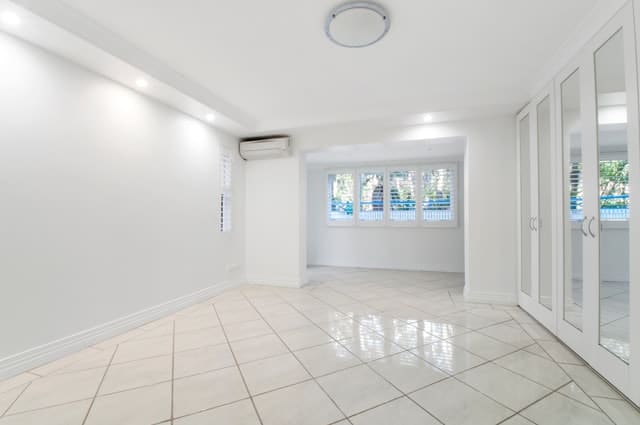
If you have a problem tenant that hasn’t been paying rent, damaged your property, or otherwise violated the terms of your agreement, it can be tempting to simply change the locks and regain control of your rental. Doing so is illegal in the U.S., however, and you’re required to give notice that you’re terminating the tenancy. How much notice is required to evict a tenant from your property, then?
The short answer is: it depends. Different states have their own laws about eviction, ending a tenancy, and changing the terms of a rental agreement or lease. Some cities also have their own laws, and some places also have rent control regulations.
The type of rental agreement you have, the location of your rental property, and the reason you want your tenant out can all impact how much notice you have to give before starting an eviction proceeding.
Let’s dive in and look at everything you need to know about giving notice for termination of tenancy.

The civil process through which a landlord can remove a tenant from their rental property legally is known as eviction. The laws surrounding eviction in the United States are governed by individual states and, in some cases, municipalities.
Landlords are required to give tenants a certain amount of notice to let them know that an eviction process will begin in a specific number of days if they don’t move out or correct the lease violation that led the landlord to give them notice.
When a tenant is on a lease, a landlord can only terminate the lease before its expiration for specific reasons. These can vary by state, but common reasons include:
How long a landlord has to give a tenant to fix an issue varies by state. In some states, landlords don’t have to give tenants the opportunity to remedy the problem (such as allowing for a grace period in which tenants can pay past-due rent.)
If you want a tenant out of your property, the best case scenario is that they move out within the period of time outlined by your notice (as informed by state and local laws.) However, if they don’t move out within that period of time (or remedy the situation, if applicable,) a landlord can begin the formal eviction process.
Though laws vary by state and municipality, the process of eviction is fairly similar between states. The general steps involved include:
If an eviction is ordered by the court, that doesn’t mean that you can go over to the rental property and start dumping the tenant’s possessions on the sidewalk. The court judgment will have to be brought to local law enforcement, and a marshal or sheriff will give notice to the tenant that they will physically remove the tenant from the property if they don’t leave within a certain time frame.
If a tenant does leave the property but abandons some of their possession there, you also have to abide by specific state and local laws. Even though it might be tempting, you aren’t always legally allowed to order a big dumpster and start filling it up.
Now that you have a general sense of the eviction process, let’s look into the different types of notices you can give a tenant for termination.
For more information about eviction, check out our article on how to evict someone who doesn’t have a lease.

In order to begin an eviction lawsuit, a landlord has to legally terminate the tenancy. To do this, they have to give written notice to the tenant, following the laws in the state where the rental property is.
If the tenant doesn’t fix the issue that prompted the termination or love out, the landlord then has the right to file an eviction lawsuit. In some places, this type of lawsuit is referred to as an unlawful detainer (UD) suit.
There are a number of different notices that a landlord can give to tenants when they have a reason for wanting the tenant to leave. Depending on this reason, they might give a pay rent or quit notice, a cure or quit notice, or an unconditional quit notice.
A landlord might give out “cure or quit” notices if a tenant violates the contract, such as having a pet when it is in the lease that tenants can’t have pets.
When it comes to unconditional quit notices, most states only allow them in certain circumstances, such as:
Some states have more landlord-friendly laws where landlords don’t have to give tenants the opportunity to correct a lease violation or pay the rent they owe. When this is the case, a landlord can go ahead and use an unconditional quit notice, to begin with. They, of course, can offer the chance to remedy the issue, but they aren’t required by law to do so.
If a tenant is given the opportunity to fix the problem, whether because it’s required by law or due to the good grace of the landlord, they need to solve the problem by the deadline listed in the notice. If they don’t, the landlord can move forward and file an eviction lawsuit.

If your tenant has a fixed-term lease, you most likely can’t end the tenancy without cause.
For other types of rental agreements, such as month-to-month agreements or short-term agreements, a landlord is able to end a tenancy without any specific reason. All they are required to do is give the tenant a specific amount of notice. How much notice you’re required to give to a tenant in these cases is determined by the laws in your state.
It’s worth mentioning that places with rent control laws often don’t allow landlords to end a tenancy without cause even in the case of shorter-term agreements or month-to-month agreements.
If you’re like most investors, you want to get a good deal on any property you buy. Before you head to the next housing auction, though, read this article about why buying foreclosed property is risky.

How much notice you need to give a tenant in order to evict them from your property varies depending on the state your rental property is in, as this is governed by state law.
No matter the circumstance of why you want your tenant to move out of your property, it’s definitely best to make sure all of your communications with them are in writing. This way, if it does end up going to court, you have a clear record of what you said and what they did (or didn’t) say in response.
If the tenant you want to move out of your property is on a lease that is about to expire, you might simply choose to not renew the lease. You don’t need to have a reason that you’re not renewing the lease. If the tenants choose not to move out when the lease period is over, though, you’ll have to begin the legal process of removing them from the property.
The only expectation to this rule is if your tenants are using Section 8. If this is the case, you have to follow specific rules as they are outlined by the local public housing authority.
It’s common for landlords to include a lease clause that outlines how much notice they will give if they aren’t going to renew the lease. If there isn’t a clause in your lease to this effect, the general rule of thumb is to give thirty days' notice. Some suggest landlords give their tenants sixty days' notice. Check your state laws to make sure that this is an adequate amount of time.
You might choose to give more notice if you have been happy with the tenants but simply can’t rent to them anymore, as this will give them more time to secure a new housing situation.
That being said, if you are not going to renew the lease for problem tenants, you probably don’t want to give them any more notice than you have to. This is because the more time they spend in your property, the more time they have to cause trouble. Of course, if they are being so problematic as for this to be an issue, you might choose to serve them notice to quit or another notice of termination with cause.
If you’re renting to Section 8 tenants, you’ll want to contact your local public housing authority in order to learn whether you need to give cause for lease termination or if you can simply not renew the lease without cause.
By contacting the PHA, you can also make sure that you are following the proper legal process. You can also determine what is considered a valid cause and what is an invalid cause if it is the case that cause is required.
For general information about eviction, check out this recent post about how to evict someone from your property or home.
In order to legally kick out a tenant during a lease period, you need to have a reason that is considered valid under the law.
How much notice you need to give a tenant to either move-out or fix a lease violation varies between states. This is all the more reason to familiarize yourself with the nitty-gritty of landlord-tenant law in your state before beginning to invest in rental properties.
Let’s take a look at the laws in a handful of states to give you a sense of the way they can vary. For example, how long do you have to wait after a tenant has been late on their rent payment to give them notice? Once you’ve given them notice, how long do you have to give them to move out or pay what they owe?
In the state of Connecticut, a tenant has nine days to pay their rent after it’s due. During this time, a landlord can’t begin the eviction process. However, if the rent isn’t paid within that time, the landlord can give the tenant an unconditional three-day notice to quit, meaning that the tenant has three days to move out or the landlord will begin eviction proceedings.
In Louisiana, on the other hand, a landlord can terminate the tenancy with an unconditional quit notice right away when rent is late. Landlords in Louisiana use a five-day notice to vacate no matter what the reason is. As soon as a tenant has violated the lease or didn’t pay the rent on time, a landlord can immediately serve this five-day unconditional notice to quit. If the tenant doesn’t move out in five days, the landlord can begin the eviction process.
On the other end of the spectrum, we have landlord-tenant laws in Vermont. Vermont offers a fourteen-day grace period for tenants to pay rent. The lease or rental agreement can also outline an extended grace period if the landlord chooses to do so.
Before they can start the eviction process, a landlord has to give the tenant a written notice. In Vermont, this is a 14-Day Notice to Pay. This notice tells the tenant that they must pay the rent they owe in fourteen days or move out in order to avoid an eviction lawsuit.
If they pay their rent within that fourteen-day period, however, the eviction process stops.
As you can see, state law has a huge impact on how much notice you have to give and when you can begin eviction proceedings.
Most states require that landlords give a tenant thirty days' notice to end a month-to-month rental agreement. It’s important to be familiar with your particular state laws, however, as there are some exceptions.
For example, Delaware requires landlords to give month-to-month tenants sixty days' notice, while North Carolina only requires seven days' notice.
In many places, the amount of notice that a landlord needs to offer in order to change the terms of the rental agreement or raise the rent is the same as how much notice they need to give to end the tenancy.
On top of knowing your state laws, you’ll also want to check and make sure your municipality (or, if you’re in Oregon, your state) has rent control laws you should be concerned with.
If a tenant hasn’t paid rent or has violated the terms of the agreement, you might not need to give the full amount of notice required for ending a tenancy without just cause.
In the following state, a landlord must give thirty days to tenants for month-to-month agreements if they are doing so without specific cause:
In the following states, the law is written so that landlords must give “one month” to end tenancy for a month-to-month without cause:
Other states have their own rules– for example, Utah only requires that landlords give fifteen days' notice, while Delaware requires that landlords give sixty days' notice. Again, you’ll want to become familiar with landlord-tenant laws in your state to learn the proper amount of notice you need to give to your tenants.
There are 37 states in the US that have forbid the enactment of rent regulation at the level of local government. According to the Urban Institute, however, there are still 182 municipalities in the United States that have rent control laws in place.
Oregon was the first state to enact a statewide rent control regulation, while other states like California, Maryland, New Jersey, and New York have rent control laws. Washington D.C. has rental regulations as well.
Rent control laws intend to protect tenants from landlords that want to charge excessive rental rates. Landlords can receive severe penalties for violating rent control ordinances, and could even potentially be criminally prosecuted for rent control violations.
For this reason, it’s essential to know whether or not there are rent control laws in your state or city.
In general, landlords can’t evict tenants or even choose to not renew a lease in order to replace them with higher-paying tenants under rent control laws. A landlord must have “just cause” in order to end a tenancy or evict a tenant.
Different jurisdictions will have their own rules about what constitutes a valid reason for ending a tenancy. Common reasons that are considered just include:
You’ll want to be thoroughly familiar with rent control laws in your city if such regulations are in place. Tenants that believe that their landlord violated rent control laws can usually request an intervention by petitioning the local rent board. They also might file a lawsuit in civil court.
Failure to comply with rent control laws often comes with steep civil penalties and sometimes even criminal penalties.
A landlord that violates rent control laws can potentially face money damages, injunctions, lawyer’s fees, and, in extreme cases, time in jail.
Depending on where your rental is located, the reason for the eviction, and the type of property, the eviction process can take anywhere from two weeks to three months or more. Whether the tenant has had previous infractions can also impact how long an eviction takes.
Are you wondering how to calculate the value of your rental based on how much rent you receive? Check out this article to learn about two approaches for determining property value based on rental income.
If you don’t give adequate notice to a tenant you are evicting, they can use this as a defense against eviction. Landlords that don’t give the proper amount of notice before filing for eviction or didn’t follow the laws when it comes to how to deliver or serve the notice, the tenant might be able to use this in court. This might be the case even if the tenant hasn’t paid rent in some time.
If this is the only defense the tenant has, it usually means that you’ll have to start the whole process over from scratch. This is extremely unideal, though, as you now have a disgruntled tenant in your property for an even longer period of time. On top of that, you’re not receiving your regular monthly income.
Dealing with problematic tenants can be incredibly stressful. You put your hard-earned savings into buying a rental property, only to have someone living there without paying rent or otherwise causing trouble. There is a lot of information online about the toll that eviction takes on tenants, which is all very valid. At the same time, though, not much attention is given to the very real impact evictions can have on landlords as well.
If a tenant moves out within the period of time you outlined in your notice to quit, the whole situation can be over fairly quickly. However, if you have to take the tenant to court, the whole thing can quickly turn into a nightmare.
Not only are you constantly stressed by the fact that bad tenants are currently in your property, but you also aren’t collecting the rent you count on each month. Then there’s fixing any damage the tenants caused and dealing with legal fees to consider.
The best way to avoid having to deal with the eviction process in any of your rentals is to find high-quality tenants that you trust to abide by the contract you have both signed. You can do this by screening tenants, creating professional ads, and taking other measures. Another thing to consider is the type of rental property you buy, its location, and the tenants you will likely attract.
There are countless factors to take into account when you're purchasing a rental. While choosing a rental that will attract good tenants is important, that doesn’t mean much if the numbers don’t add up in your favor. Be sure to check out our rental property calculators to help you narrow down your shortlist and select the right investment property for your financial goals.
We encourage you to share this article on Twitter and Facebook. Just click those two links - you'll see why.
It's important to share the news to spread the truth. Most people won't.